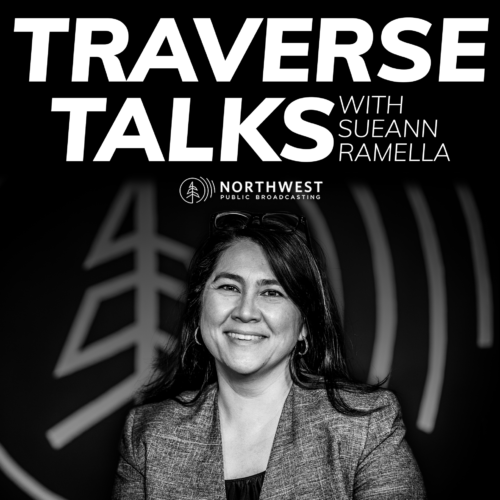
What’s It Like As A Woman In A Man’s World? ‘Traverse Talks’ Episode 33 – With Author Sam Maggs

Book, comic book and video game author Sam Maggs is working to carve a path for minorities in industries traditionally populated by cisgender, heterosexual white men. Having written books including The Fangirl’s Guide to the Galaxy and games including Call of Duty: Vanguard, Sam has a wealth of experience in the business of comics and video games. In this episode of Traverse Talks with Sueann Ramella, Sam discusses the roles gender and identity have played in her life growing up and now. What stories do we prioritize? What messages do we internalize? In which ways is representation lacking? The roots of patriarchal society spread deep, and though progress has been made, Sam says there’s still work to be done.
SUBSCRIBE: Spotify / Apple Podcasts / NPR One / YouTube
Listen
Conversation Highlights:
Forging A Path For Those To Come:
Sueann Ramella: What is it like being a brilliant storyteller in a predominantly mans world?
Sam Maggs: It’s challenging and it’s also exciting. In both of the industries – you know, in comics and video games – I think one industry is like 16% women and I think the other is like 22%. We’re still really lagging there in terms of behind-the-screen and behind-the-page representation, so I do find myself often being the only woman in the room. And that can present a series of challenges, in that I think a lot of the times, places will hire people like me either to look like they’re being progressive without actually wanting to do the work, or because they think they wanna do it but then when you bring up the things that they hired you to do, you get a lot of pushback. Because, you know, change is hard. Ultimately, we’re making product as well as art, so there’s nervousness about making money and, you know, capitalism and all of that. It can be difficult sometimes to be the voice that’s trying to say, “I know you guys aren’t bad people, but your representation of these characters is lagging or your diversity behind-the-scenes is lagging.” That can be interpreted in a bunch of different ways that aren’t always positive. So I’ve had experiences with folks over the years who are not super stoked about hearing that kind of feedback, and then I’ve also had experiences with people who are really grateful for it and end up making great art out of looking in places or for people they would never have looked at before. It’s a great opportunity. I would not be in this position were it not for women before me who had it even harder. I have it a little bit easier than they did, and I think it’s my responsibility to make it a little bit easier for the girls and women and nonbinary people and queer people who come into these environments after me.
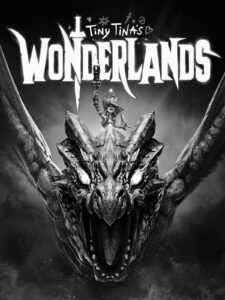
Sam was a writer for the “Borderlands” spin-off, “Tiny Tina’s Wonderlands.”
Sueann: You’ve got, like, long-road goals here, right? A higher, communal mentality about it all and your place in it. But Sam, aren’t there times that you feel a bit drained by it?
Sam: Yeah, it’s exhausting; I’m gonna be honest with you. And, you know, I’m queer and a woman, but I’m also white. So for people of color as well, there are all these other marginalizations that can intersect. It is exhausting. It is exhausting having to do the work all the time and to see slow progress. But I do think we’re seeing progress and that’s encouraging. It can be hard, though. I mean, it puts a lot of pressure on the marginalized people to always be the ones putting their neck on the line to advocate for change. And I’ve definitely been on the receiving end of some negative- you know, not all bosses have loved me, I’m gonna be straight up. And I haven’t loved all bosses, so it goes both ways.
We Must Change For The Culture To Change:
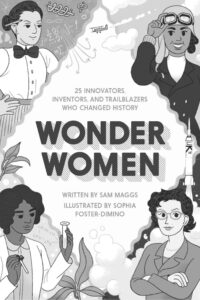
Sam’s book “Wonder Women” covers 25 women whose stories have been largely overlooked by history.
Sueann: Growing up, it never occurred to me that women were involved in so many things. I just happened to be half the population but not half of what I was reading about or viewing.
Sam: Absolutely. Well, thank you so much for saying that, first of all. And that’s exactly what I write them for, you know. I write the books that I wish I had had when I was a teenager or pre-teen or growing up, and, frankly, even now, to your point. And I think that it took me a really long time, because of the way we were educated, to realize that history is not necessarily truth. Everyone presents history differently, and depending on the person who’s writing about it, whether that be 200 years ago or now, everyone has a different perspective and agenda that they’re bringing to that history as they’re writing it. Mine happens to be trying to uncover some of the lost stories that we don’t really get to hear anymore because of whose stories were prioritized or deemed important or worthy at the time.
Sueann: Oh yeah, and I’m thankful you’re doing that. Well- what was it? I think only five years ago, I found out about the warrior queen Boudica and that she burnt down London. And I’m like, “Hold up. What?”
Sam: “Why was this not in any of our textbooks? Excuse me?”
Sueann: She burnt down London. That’s a big deal. And I know nothing about this.
Sam: Seriously. And there are so many stories like that.
Sueann: What makes a good story?
Sam: I say this a lot, but I have seen every iteration of [a] white man with a light, stubbly beard get superpowers that I think there can be. Don’t get me wrong – I loved every single one of them. I loved them all. However, [there are] only so many different ways you can tell that story. Which is why I think people were so excited for films like Black Panther, or Black Widow and Captain Marvel and stuff like that, and Shang-Chi. Because it’s like, “Ah, this is so different. This is so interesting.” I don’t know. It’s exciting.
Sueann: No, it’s true. I was stoked. I didn’t really know Captain Marvel and [I was] so happy to see it. And then, having a daughter, realizing how many things I have caught myself perpetuating as far as-
Sam: Oh yeah.
Sueann: You know what I mean? Like the earliest one, I told her to quit being bossy. And a friend of mine kind of nudged me aside and said, “You know, if Coco was a boy, you wouldn’t even say a thing.” And I was like, “Holy….”
Sam: Yeah. That’s so interesting. I wrote a book – a middle-grade book, fiction book – for like 8- to 12-year-olds called Con Quest!, about twins at Comic-Con participating in a scavenger hunt and the gal twin, Cat, at a couple points in the book I had her brother calling her bossy, and I remember my editor specifically being like, “No. We don’t do that. We will not be doing that. We will be changing this.” And I was like, “Oh my gosh you’re so right. Absolutely.” So I goof up all the time too, but it’s good that we hold each other accountable to stuff like that ’cause-
Sueann: We learn.
Sam: Yeah! We’re programmed that way, right? It can be hard, but you gotta be open to fixing it.
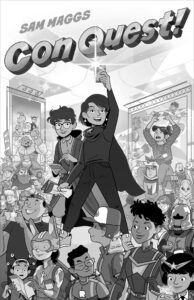
Cover of Sam’s debut novel “Con Quest!”
Sueann: I wanna know what you think makes a good mentor.
Sam: This is a great question. I’ve had wonderful mentors who are both men and women and nonbinary in the industry, actually. And, for me, I think it’s kind of exactly what you were saying before about adjusting your expectations in terms of people you’re willing to reach a hand out to and help. Like, no one is born knowing how to make a video game or how to make a comic. Every single person has had someone teach them how to do that or help them. And so, for me, the best mentors that I’ve had have been the ones who were willing to reach out a hand and say, “I see a lot of potential in you, even though I know you don’t know how to do this. And I’m gonna take time out of my life to teach you how to do this so that you can come up after me and then hopefully teach people after you how to do this.” My first mentor in the industry was Patrick Weekes. They basically taught me how to write video games and I’m super grateful for that. I had only ever written books, like nonfiction books, before that. They were taking a really big chance on me. They were willing to do that. They were willing to stick their neck out to say, “No, I have a lot of faith in this person. I think, you know, with the right training, they can learn how to do this.” It’s not innate. Like, I never thought that I could get into video games with my being a woman and my experience in literature instead of coding. You know, all of those things. It’s about seeing that potential in someone and believing in them enough to really put your own neck on the line. I think that’s part of being a good ally, too, is if you’re in a position of privilege – so if you’re a white person speaking up on behalf of your people of color colleagues, or if you’re a straight person speaking up for your queer colleagues, and not making it so that they’re always the ones having to bring up the problems or make those arguments. Because they’re a lot more likely to be punished for it than you are.
The Nitty-Gritty Of Creation – Video Games and Comic Books:
Sueann: You brought up two things that I’d like to go into a little bit deeper: what is the difference between writing a good story for a video game versus a graphic novel?
Sam: That’s a great question. There are tricks and tips to writing in all these different mediums – certain things work for some mediums that don’t work in others. I think that the thing that people have to realize in video games is that narrative is just one small part of a really, really large whole. You know, in television the writers are the showrunners. In movies, it’s the writer and director, and it’s all about the story. And in comics too. You know, in comics you share – I would say it’s all about the art, so you share that narrative space with the artist. But in video games, the primary function of the game is that it feels good to play – whether that be it’s fun or it’s scary or the combat is great. It has to be a good, active experience first, and the narrative is just one of many parts of that. Like, it’s a very, very, very collaborative industry. Especially when you think about the fact that sometimes there can be thousands and thousands of people working for six years on the same game. And to get everyone on the same page, everyone is contributing to that. And so the narrative has to serve the greater purpose there – which is a game that feels good to play. Now, that can provide a lot of challenges that you don’t find in other mediums; like, they might be mad at me, but I can ask my artist in a comic book to draw whatever I want and they’ll do it. But in a video game, the engine might not be able to support more than one character on the screen at a time. Or we might not have a model for that type of character. Or – there’s a lot of, like, technical limitations that give you a box within which you have to keep your storytelling. So there’s more challenges in video games, but I think that those constraints also lead to more interesting and innovative methods of storytelling, whereas comic books you’re telling a linear story. And that’s great. There’s a ton of freedom. You don’t have to worry about any of the effects budget. It’s short for the most part. You’re kind of an auteur in comics. Like, between you and your author, you’re coming up with whatever you wanna say and nobody’s – except your editors – really telling you otherwise. In video games, there’s usually, like, 50 people who have seniority over the writer who are telling you what to do and think they know how to do story better than you do, and sometimes they do and sometimes they don’t. But you’re serving a lot of masters. You have a lot less control that way but, again, those challenges can lead to really interesting and innovative solutions.
Sueann: Yeah. Being creative in a boundary type frame. That, to me, makes you more creative.
Sam: Agreed.
*Question and responses were edited for length and clarity.
Related Stories:
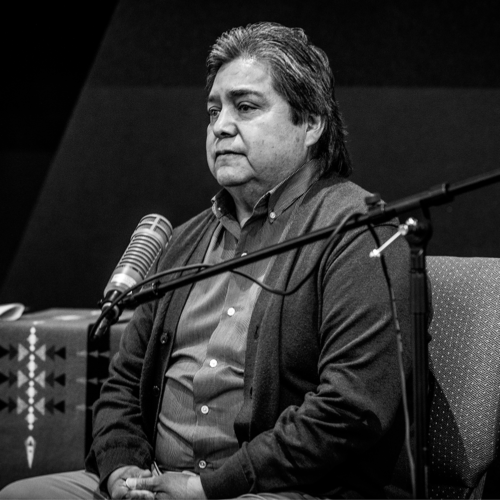
Captive Returns Home: The Story Of Wetxuuwíitin – ‘Traverse Talks’ Episode 42 – With Chairman Samuel Penney
Photo of Sam Penney recording Traverse Talks at the Nez Perce National Historic Park on March 10, 2022. Imagine a stranger took your family’s heirlooms and then offered you an
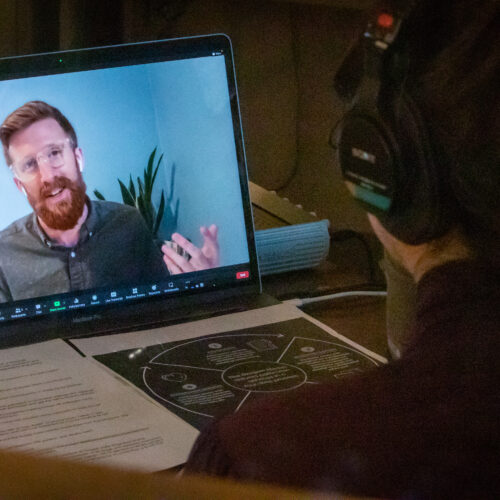
Psilocybin: Psychology, Policy and Possibilities – ‘Traverse Talks’ Episode 41 – With Sam Chapman
Sueann Ramella interviews Sam Chapman virtually on April 19, 2022. What do you really know about psilocybin, commonly known as magic mushrooms? Research on the substance has lagged behind in
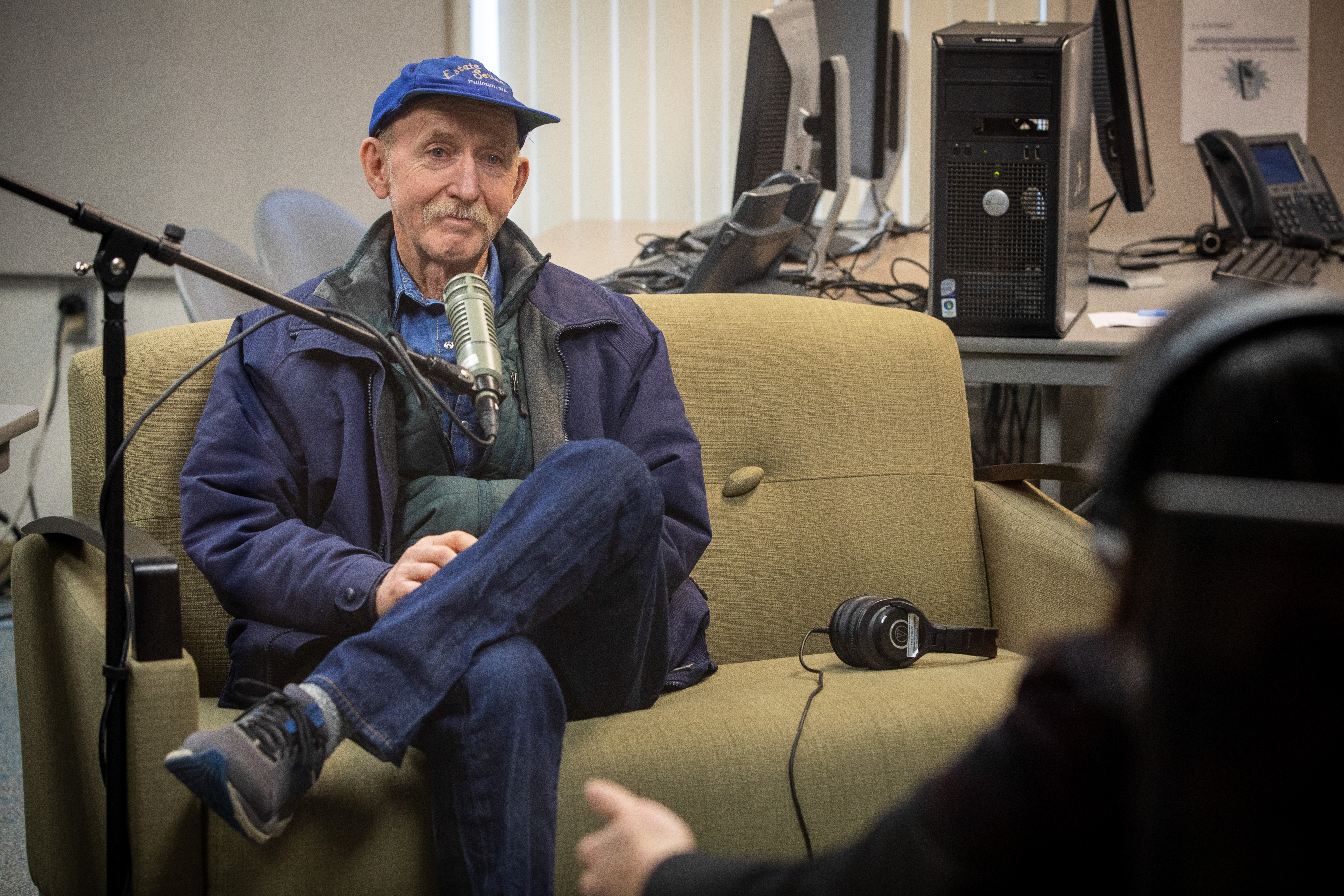
You Inherited A House Full Of Stuff. What’s Next? ‘Traverse Talks’ Episode 38 – With Estate Services Owner Rich Old
Rich Old recording this episode of Traverse Talks on March 3rd, 2022. Grieving the loss of a loved one is already hard enough. To make matters worse, many people have

